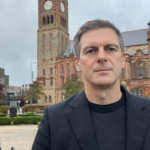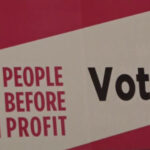The only useful point made in the Pay Commission report was that €2.2 billion has been taken from public sector workers since the Celtic Tiger crash. This money was used to pay off the bankers’ debt.
The rest of the report is designed to pull the wool over our eyes. Its purpose is to pressurise workers into accepting another 2% pay rise a year partnership deal.
Moves have already been choreographed so that government and ICTU fast track a new deal that will force employees to work to do extra hours for free – permanently. These free hours were extracted under a series of previous partnership deals that were negotiated under the threat of emergency legislation, known as FEMPI.
The Pay Commission employed a US consultancy firm, Millman, to conduct an ‘objective’ study on pension benefits. By pure coincidence they came up with a finding that the 15% of public sector workers who were on a new pension scheme since 2013 were on an equivalent pension to private sector workers.
The other 85% were enjoying benefits and, it was suggested, should be asked to pay more for these. In other words, Millman had found another ‘objective’ reason for continuing the pension levy that had been imposed at the height of the crash in 2009.
The real pension scandal, however, is not ‘gold-plated’ public sector pensions – it is the rip off of thousands of private sector workers by giant corporations. These take a number of forms
• Hugely profitable companies that have solvent pension funds are closing their defined benefit schemes. A defined benefit scheme gives workers security in their old age by guaranteeing a proportion of their final salary – depending on the years they worked. Companies like the Irish Independent, Abbot, Irish Life and Intel are forcing workers off these schemes – in order to bolster their profits.
• Many workers are forced to contribute to the private pension industry in the hope of gaining security in their later years. But a report commissioned by the Department of Social Protection in 2013 showed there were massive rip off charges applied. The for-profit pension industry imposes charges of between 8% and 31% of the final pension fund. The report cited a typical example of a worker who contributed €500 a month to their pension scheme from the age of 35 to their retirement at 65. It found that the charges could amount to somewhere between €52,577 and €77,138 over their lifetime. And that is only the identifiable charges’! The report also found that there were ‘non-disclosed costs’ which amount to another 2-4% of the final pension fund.
• The whole pension industry is subsidised by tax breaks. For the very rich, there are Advanced Retirement Funds which are ‘tax efficient’ and which can be inherited. Overall the tax subsidies – which often make contributions by workers just about bearable- amount to €3 billion a year. But these are more likely to benefit higher earners rather than those at the bottom of the scale. 80% of the tax subsidies go to the top 20% of pension earners.
None of these scandals are referenced in the Pay Commission report because there is nothing objective in it. It is only a manoeuvre to pressurise weak union leaders into accepting a deal which copper fastens the ‘give backs’ taken from workers during the recession.
Public sector workers should oppose these manoeuvres and push for a full restoration of their pay; a return to proper overtime rates; and an end to working for unpaid hours. Crucially, they must also insist on pay equality so that those who joined the public sector after 2011 get the same pay scale as those who joined before that.
More generally, we need to ensure that all workers get access to decent pensions. The tax breaks that fund the private pension industry need to be re-directed towards a proper state pension scheme into which all companies and workers contribute. It should be made illegal to close a pension scheme that is organised by a profitable company.
Above all, we need to see guaranteed pension for those who work throughout their lives as a right – not a privilege.












